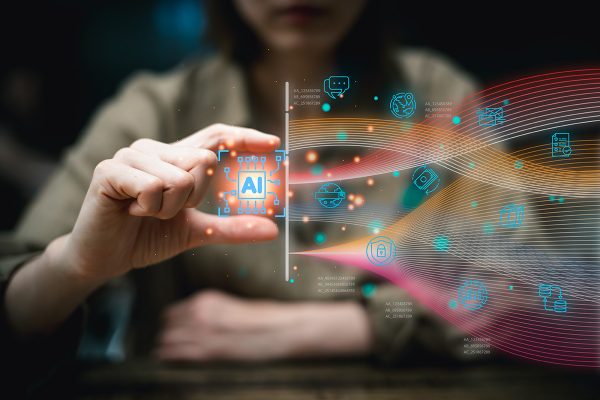Artificial intelligence (AI) continues to evolve at a rapid pace, and 2025 promises to be a crucial year in its development. From advancements in science and medicine to the automation of everyday tasks, AI will transform various sectors. However, ethical and regulatory challenges will also emerge, requiring careful attention. Below, we explore the key trends that will define the near future of this technology.
Artificial Intelligence and Scientific Progress
AI has become a key tool in scientific research. In the field of biomedicine, AlphaFold has determined the three-dimensional structure of 200 million proteins, facilitating the development of new treatments. By 2025, its use will expand, enabling even more significant discoveries.
In the realm of climate change, ClimateNet uses neural networks to analyze large volumes of data and predict extreme weather events with greater accuracy. Its role will be essential for mitigating natural disasters and designing adaptation strategies.
Centaur Models: Decision-Making
One of the biggest challenges in adopting AI is its application in high-risk scenarios, such as medicine and justice. Centaur models combine the analytical capabilities of AI with human intuition and judgment. In the case of the “centaur doctor,” AI will assist in diagnostics, but the final decision will remain in the hands of healthcare professionals. The same will apply in the legal field, where judges will use AI to improve decision-making.

Autonomous Agents and Personalized Automation
Major tech companies like OpenAI, Google, and Meta are working on autonomous AI agents capable of performing tasks without human intervention. By 2025, these systems will be able to manage calendars, respond to emails, and make online purchases efficiently and with personalization.
Platforms like AgentGPT and Google Gemini 2.0 will enable the development of these agents, while models like Claude Sonnet will interact with computers by mimicking human behavior. In the education sector, these advancements could facilitate personalized learning and help identify areas for improvement in students.
Compact Language Models on Mobile Devices
Small and open language models (SLMs) will be a revolution in 2025. Unlike current models, these systems will run on mobile devices without needing to connect to massive servers. This will make them more accessible and efficient, with applications in education, machine translation, and medical diagnosis in resource-limited areas.
The Challenge of Regulating Artificial Intelligence
The rapid growth of AI also highlights the need to establish clear norms and regulations. In 2024, the European Union approved a regulatory framework that will come into effect in 2026, setting requirements such as transparency, security, and data protection. These standards will be key to ensuring the responsible development of AI and will define the future of its application across various sectors.
Continue Your Professional Development
Our Master in Strategic Management with a specialty in Information Technology equips you with the tools needed to lead in a world driven by artificial intelligence and technological innovation. With advancements in biomedicine, climate change, and automation, this is your opportunity to be part of the digital revolution. If you want to make a difference in key sectors like healthcare, justice, and education, this master’s program prepares you to tackle the challenges of the future.

